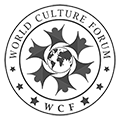Tourism is a product of modern social arrangements, beginning in Western Europe in the 17th century. By the early 21st century, international tourism had become one of the world’s most important economic activities, and its impact was becoming increasingly apparent from the Arctic to Antarctica. Today, the business volume of tourism equals or even surpasses that of oil exports, food products or automobiles. Tourism has become one of the major players in international commerce, and represents at the same time one of the main income sources for many developing countries. This growth goes hand in hand with an increasing diversification and competition among destinations. This global spread of tourism in industrialized and developed states has produced economic and employment benefits in many related sectors – from construction to agriculture or telecommunications.
As one of the biggest contributors to the global The Travel and Tourism (T&T) industry directly contributes about 3.6% of the world’s Gross Domestic Product (GDP) and, indirectly contributes about 10.3% to it. As one of the biggest contributors to the global GDP, this industry directly employs nearly 77 million people worldwide, which comprises about 3% of the world’s total employment. The T&T industry also contributes to indirect employment generation to the tune of 234 million or 8.7 % of the total employment implying that one in every twelve jobs in the world is in the tourism industry.
There are various types of tourism such as recreational tourism, cultural tourism, adventure tourism, religious tourism, medical tourism, ethnic or nature tourism, educational tourism and business tourism. Cultural tourism, historical tourism, medical tourism, adventure tourism, sports tourism, wildlife tourism, rural tourism, eco-tourism etc. are some important forms of tourism. Tourism is a cultural phenomenon. Culture and tourism have a mutually beneficial relationship which has strengthen the attractiveness and competitiveness of places, regions and countries. Culture is increasingly an important element of the tourism product as it creates effectiveness in a crowded global marketplace. Tourism also helps to preserve, retain and enrich our cultural heritage. Every tourism site and popular places are bestowed with things that are endemic which have the tendency to tell unique stories.
The World Tourism Organization (UNWTO), a United Nations specialized agency, is the leading international organization in the field of tourism. It is responsible for the promotion of responsible, sustainable and universally accessible tourism geared towards the achievement of the universal 2030 Agenda for Sustainable Development and the Sustainable Development Goals (SDGs).
UNWTO offers leadership and support to the tourism sector in advancing knowledge and tourism policies worldwide, advocating for responsible tourism and promoting tourism as a driving force towards economic growth, inclusive development and environmental sustainability.
This empowerment model, based on promoting a responsible tourism development, cultural transmission and fair-trade principles, will represent a novel community approach with a high global replication potential. And ever since the inception of UNWTO, World Tourism Day has been held on 27 September each year since 1980.
Also since 2007, UNWTO has been working – through its Ethics, Culture and Social Responsibility Department – in partnership with UN Women and a range of external partners across the globe, to bring gender issues to the forefront of the tourism sector, promoting gender equality and women’s empowerment and encouraging member states to mainstream gender issues in their respective tourism policies.
The Global Report on Women in Tourism 2010 was officially launched in Berlin in March 2011. As the first attempt to map women’s active participation in the tourism industry worldwide, the Global Report represents a landmark in the field of tourism and gender, focusing on five main areas: employment, entrepreneurship, leadership, community and education. In the context of responsible tourism and local development, this study confirms that tourism can act as a vehicle for the empowerment of women whilst highlighting the remaining challenges for gender equality in tourism.
Due to women’s concentration in lower status and lower paid jobs in tourism, their potential to contribute fully is currently untapped. Empowering women to participate fully in economic life is essential to building strong economies; creating more stable and just societies; achieving internationally agreed goals for development, sustainability and human rights; and improving the quality of life of women, and consequently, that of communities. For the tourism sector, the impact of greater gender equality and women’s empowerment would be highly beneficial, because diverse and gender equitable organizations perform better. Tourism has been proven to provide pathways to empowerment, and that the opportunity for tourism to make a difference in this area should be maximized.
Tourism is vital for the success of many economies around the world. There are several benefits of tourism on host destinations. Tourism boosts the revenue of the economy, creates thousands of jobs, develops the infrastructures of a country, and plants a sense of cultural exchange between foreigners and citizens. However, with time, the concept of mass tourism has had a damaging effect to the destination owing to factors like pollution, over-crowding etc. which paved the way for emergence of alternate forms of tourism like sustainable tourism, green tourism, heritage tourism, eco-tourism, which not only offer tourism opportunities but also cause less (or almost negligible) damage to the destination. Therefore, mindful adoption and cautious utilization of resources are a must to regulate this sector of economy and generate and preserve our valued resources.
